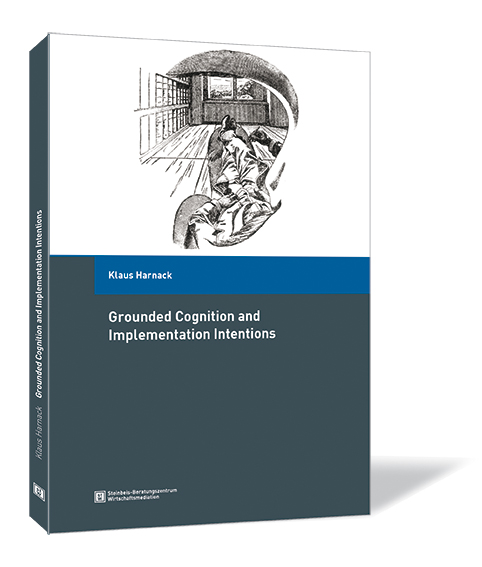Blick ins Buch | Cover als JPEG
- Can haptic feedback influence how we think about an entity and change our creativity?
- Can the pressure of your handwriting influence the effectiveness of your plans?
- Can the spatial representation of a number alter reaction times?
- Can the body posture influence our moral behavior?
- Can a facial muscle trigger our intentions?
The present line of research experimentally addresses these curious questions in order to establish a link between the theory of grounded cognition, a cognitive paradigm which points to the role of the body and body’s reference to the environment in creating cognition and implementation intentions, a self-regulating strategy that makes use of simple if-then plans. Five psychological experiments support the assumption that the implications of grounded cognition theory can be used to modify, support, and possibly enhance planning with implementation intentions. In addition, the book presents possible avenues for future research and identifies practical applications of grounded planning.
Dr. rer. nat. Klaus Harnack absolvierte seinen Bachelor in Kognitionswissenschaft an der Universität Osnabrück. Anschließend erwarb er einen Master in Forschungspsychologie an der Universität von Amsterdam, Niederlande, und promovierte an der Fakultät für Sozialpsychologie und Motivation der Universität Konstanz. Während seiner Zeit an der Universität Konstanz arbeitete er in der DFG-Forschungsgruppe „Grenzen der Intentionalität“ und erhielt ein Stipendium an der Graduiertenschule für Entscheidungswissenschaften. Derzeit arbeitet er als wissenschaftlicher Mitarbeiter am Institut für Arbeitspsychologie der Universität Münster. Er unterrichtet dabei Kurse zu Verhandlung, Konfliktlösung und Mediation sowie Kurse in Sozial-, Wirtschafts- und Organisationspsychologie. Seine Forschungsschwerpunkte sind angewandte Einstellungen von fundierter Kognition, kollektiver Entscheidungsfindung, Mediation, Motivation und Kreativität. Seit 2015 ist Dr. Klaus Harnack Projektleiter im Steinbeis-Beratungszentrum Wirtschaftsmediation. // Stand: 11/2015

